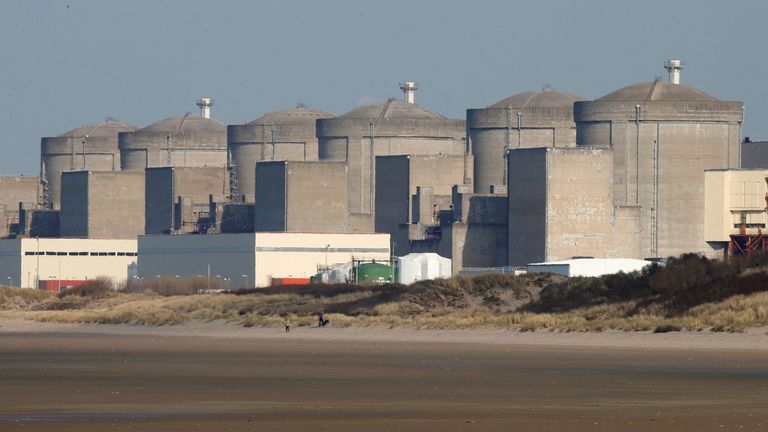Jellyfish have shut down four reactors at France’s largest nuclear power plant.
The swarm entered the filter drums of the pumping stations at the Gravelines site in northern France on Sunday night.
Operator EDF confirmed to Sky News that the “massive and unpredictable presence of jellyfish” caused units 2, 3 and 4 to automatically shut down between 11pm and midnight on 10 August.
Unit 6 then shut down just after 6am on Monday 11 August.
The plant, situated on the coast between Calais and Dunkirk, has six units which can produce a total of 5.4 gigawatts of power.
In a statement, EDF said the pumping stations affected are in the non-nuclear part of the plant, adding the shutdowns “had no impact on the safety of the facility, the safety of personnel or the environment”.
The site, which can power around 5 million homes, has temporarily stopped production while teams try to clear the blockage.
Two unaffected units had already been taken offline for maintenance.
Read more from Sky News:
Amber heat health alert issued for parts of England
Firefighters dampen down blaze at Edinburgh landmark
A spokesperson said France is still exporting more than four gigawatts of electricity to the UK.
A boom in jellyfish numbers has been reported in the sea around Calais, likely due to rising water temperatures and increases in the plankton they eat.
“Jellyfish breed faster when water is warmer, and because areas like the North Sea are becoming warmer, the reproductive window is getting wider and wider,” said Derek Wright, marine biology consultant at the National Oceanic and Atmospheric Administration Fisheries.
“Jellyfish can also hitch rides on tanker ships, entering the ships’ ballast tanks in one port and often getting pumped out into waters halfway across the globe,” he said.
The Gravelines site draws water for its cooling systems from a canal connected to the North Sea, which is home to several species of jellyfish.
The invertebrates have also been responsible for problems at several other coastal power stations, including the Torness nuclear plant in Scotland, where they have clogged the water intake pipes multiple times.
In 1999, jellyfish were blamed for causing a massive blackout in the Philippines.
